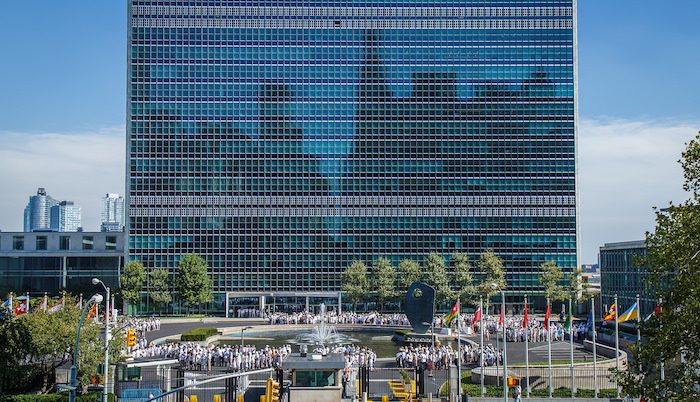Back to: History SSS 3
My brilliant scholar, welcome back! I hope you’re feeling great and ready for another insightful lesson! Today, we will be learning about Peacemaking and Socio-Political Interests of Developed Societies. This topic will help us understand how advanced nations promote peace, manage conflicts, and protect their political and economic interests worldwide.
Peacemaking and Socio-Political Interests of Developed Societies
Have you ever wondered why powerful nations like the United States, United Kingdom, China, and Russia are always involved in global peace talks, negotiations, or military interventions? It is because developed societies have a strong influence on international politics, economy, and security.

While they promote peace and stability, they also protect their own political and economic interests. Let’s explore how this works.
1. What is Peacemaking?
Peacemaking refers to efforts to stop conflicts, prevent wars, and restore peace in troubled areas. Developed countries, international organisations, and world leaders play a major role in peace efforts.
How Do Developed Societies Promote Peacemaking?
Diplomacy and Negotiations – Engaging in peace talks between warring countries.
United Nations (UN) Peacekeeping Missions – Sending soldiers to restore peace.
Economic Sanctions – Stopping trade with countries that support violence.
Humanitarian Aid – Providing food, medicine, and shelter to war victims.
For example, after World War II (1939–1945), the United Nations (UN) was created to prevent future wars and promote global peace.
2. Why Do Developed Countries Get Involved in Peacemaking?

While developed societies promote peace, they also have their own socio-political and economic interests. Some of these include:
a. Economic Interests
Many developed countries rely on natural resources from Africa, Asia, and the Middle East (e.g. oil, gold, and diamonds).
They try to prevent conflicts in countries where they have business investments.
They protect international trade routes to ensure smooth business operations.
For example, the United States and European countries often intervene in conflicts in the Middle East because of oil supply concerns.
b. Political Interests
Developed countries want to spread democracy and maintain influence in different regions.
They support friendly governments that will promote their interests.
They establish military alliances with weaker nations for strategic purposes.
For instance, during the Cold War (1947–1991), the US and the Soviet Union (now Russia) fought for influence in different parts of the world.
c. Security Interests
Developed nations help prevent the rise of terrorist groups and criminal networks.
They intervene in wars to stop the spread of nuclear weapons.
They send peacekeeping troops to prevent conflicts from affecting their own countries.
For example, NATO (North Atlantic Treaty Organisation), a military alliance of Western countries, was formed to maintain global security.
3. Examples of Peacemaking by Developed Societies
a. The United Nations (UN) and Peacekeeping
The UN has helped resolve many conflicts worldwide, including:
Peacekeeping in Rwanda after the 1994 genocide.
Conflict resolution in Liberia and Sierra Leone after civil wars.
Efforts to end apartheid in South Africa through diplomatic pressure.
b. The Role of the United States and European Countries
The US led peace talks between Israel and Arab nations to resolve conflicts in the Middle East.
European countries provided aid and military support to maintain peace in war-torn regions.
c. African and Regional Peacemaking Efforts
The African Union (AU) and ECOWAS have sent peacekeeping troops to Mali, Sudan, and Somalia.
Nigeria and South Africa have played major roles in resolving African conflicts.
4. Challenges of Peacemaking by Developed Societies
Even though developed societies engage in peacemaking, they also face challenges:
Conflicts of Interest – Sometimes, they support one side of a conflict to protect their own interests.
Failure of Peace Efforts – Some peacekeeping missions do not succeed, leading to prolonged wars.
Accusations of Exploitation – Some countries use peacemaking as an excuse to control weaker nations.
High Cost – Military interventions and humanitarian aid are expensive and put pressure on their economies.
Summary
Peacemaking involves efforts to prevent conflicts, restore peace, and promote stability.
Developed societies engage in peacemaking through diplomacy, military intervention, and economic aid.
They also protect their political, economic, and security interests when getting involved in global conflicts.
The UN, US, European nations, and African organisations have played major roles in peace efforts.
However, challenges such as conflicts of interest, high costs, and accusations of exploitation affect global peace efforts.
Evaluation
- What is peacemaking, and why is it important?
- Mention three ways developed countries promote peace in the world.
- Why do developed countries get involved in peacemaking efforts?
- What are some challenges faced in global peacemaking?
You are doing a fantastic job! Keep learning, keep growing, and keep shining. The world needs great thinkers like you! I can’t wait to see you in the next lesson. And always remember, Afrilearn is here to make learning fun and exciting for you!
